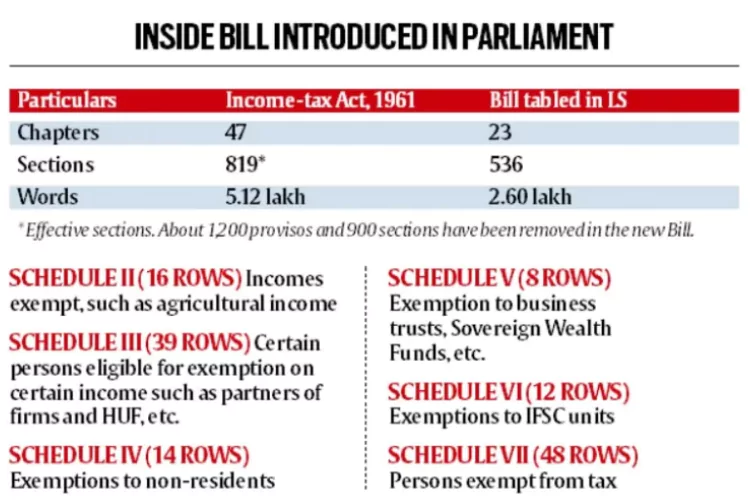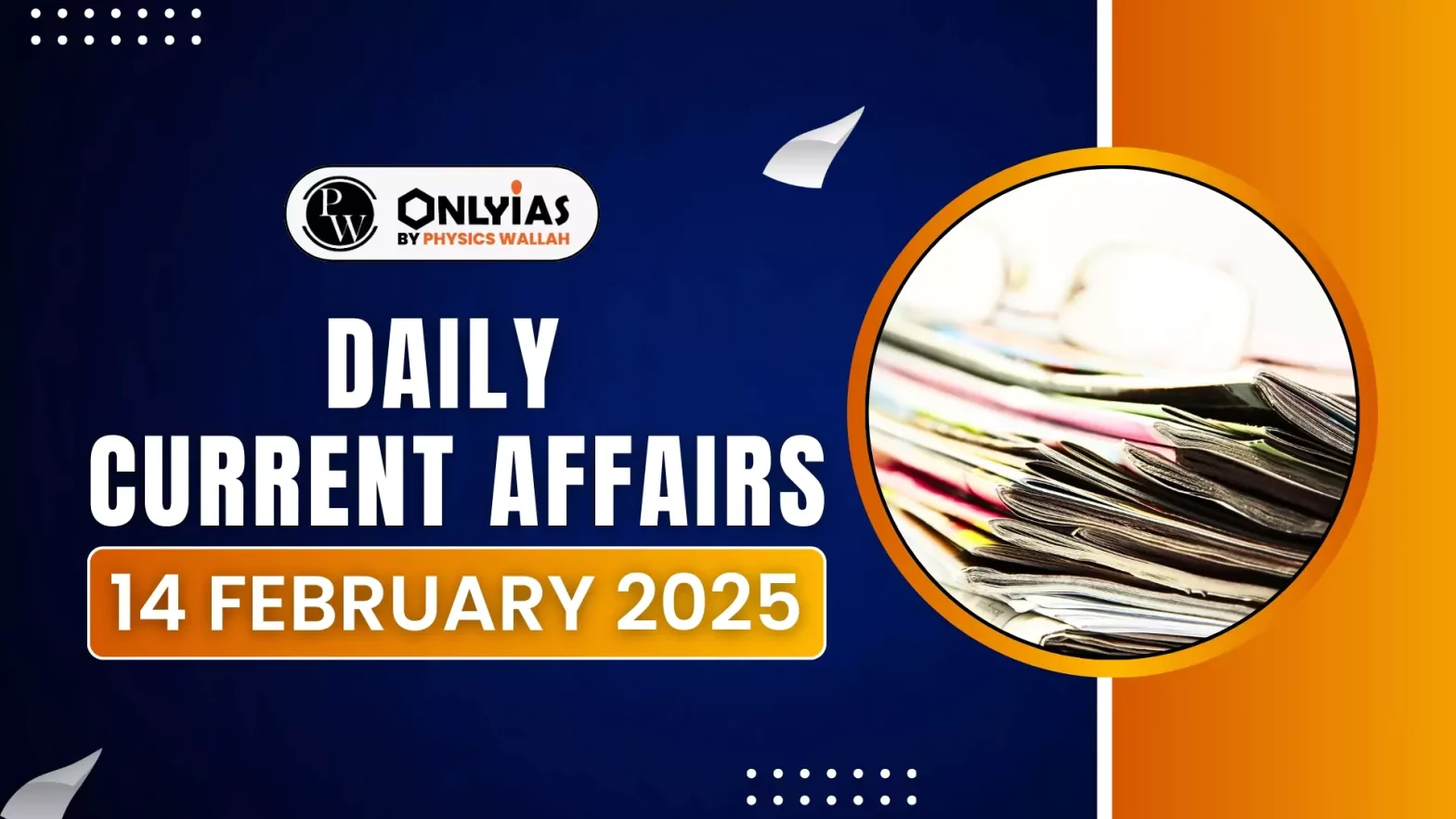The Income-Tax Bill, 2025, introduces a new ‘Tax Year’ concept, replacing the existing Assessment Year, aiming to simplify tax reporting.
About Income-Tax Bill, 2025
- Simplification: Streamline the 1961 Income-tax Act by removing obsolete provisions, redundant clauses, and complex legal jargon.
- Modernization: Reflect evolving economic realities (e.g., digital assets, new income sources).

Key Features of the Bill
- Tax Year: A 12-month period starting from April 1, during which income will be assessed and taxed in the same financial year.
- No change in the Financial Year (FY): It will continue to start on April 1 and end on March 31.
- Calendar Year Not Adopted: The new bill does not align with the calendar year for taxation purposes.
Existing System (Income-tax Act, 1961)
- Two concepts: Financial Year (FY) and Assessment Year (AY)
- Assessment Year (AY): The year following the financial year in which income is earned.
- Example: For FY 2024-25, the AY is 2025-26.
- Issue: Many taxpayers confuse FY and AY, leading to incorrect tax filings, delays in refunds, and procedural hassles.
|
- Inclusion of Virtual Digital Assets (VDAs) as Capital Assets:
- Cryptocurrencies, NFTs, and other digital assets are now formally recognized as capital assets.
- Taxation: Treated similarly to traditional assets like land, buildings, shares, securities, bullion, jewelry, and artwork.
- Implications: Ensures clarity on taxation of digital assets, aligning with global trends and addressing the growing digital economy.
- Expanded Definition of “Virtual Digital Space”: Taxpayers under investigation must provide access to their digital records, including email servers, social media accounts, online investments, trading and banking accounts, cloud servers, and digital platforms.
- Current Practice: Tax authorities already demand access to laptops, hard drives, and emails during surveys, searches, and seizures.
- Capital Gain Exemptions: Section 54E of the Act, which details exemptions for capital gains on transfer of capital assets prior to April 1992 has been removed in the Bill.
- Deductions have been streamlined, and outdated exemptions removed.
- Dispute Resolution:
- Dispute Resolution Panel (DRP): Clearer guidelines for issuing decisions, reducing ambiguity and potential litigation.
- Income and Tax Rates:
- Expands the definition of income to encompass emerging sources.
- Provides detailed tables for exempt income, conditions for claiming exemptions, deductions, TDS, and TCS in separate schedules for enhanced clarity.
- New Tax Regime: Slabs provided in tables; old regime rates omitted, signaling a shift toward promoting the new regime.
- Continuity: No major changes in tax structure, penalties, or compliance rules.
Key Implications
- Reduced Litigation: Simplified language and consolidated provisions may minimize interpretational disputes.
- Ease of Compliance: Tables and streamlined sections enhance taxpayer understanding.
- Digital Economy Integration: Recognition of VDAs and digital income sources aligns tax laws with modern economic trends.
- Stability: Maintains existing tax structure to avoid disruption while modernizing procedural aspects.
Criticisms/Challenges
- Lack of Penalty Reforms: No major updates to penalty or compliance mechanisms, potentially missing an opportunity to improve enforcement.
- Old Tax Regime Ambiguity: Exclusion of old regime slabs from the Bill raises questions about its future.
- Privacy & Surveillance: Possible infringement on individuals’ digital privacy.
- Need for Safeguards: Clear guidelines required to protect taxpayer rights from excessive scrutiny.
- Administrative Efficiency: Aims to streamline tax collection and reduce legal disputes.
Legislative Process
- Parliamentary Review: Bill referred to a Parliamentary Committee; amendments likely before implementation.
- Effective Date: Likely April 1, 2026, post-presidential assent.
Historical Context
- Past Reforms:
- Direct Taxes Code (DTC), 2010: Lapsed with the 15th Lok Sabha.
- 2018 Task Force: Drafted a new law but not implemented.
- Philosophical Shift: Aligns with “Nyaya” (justice) ethos, similar to recent criminal code reforms.
![]() 14 Feb 2025
14 Feb 2025

